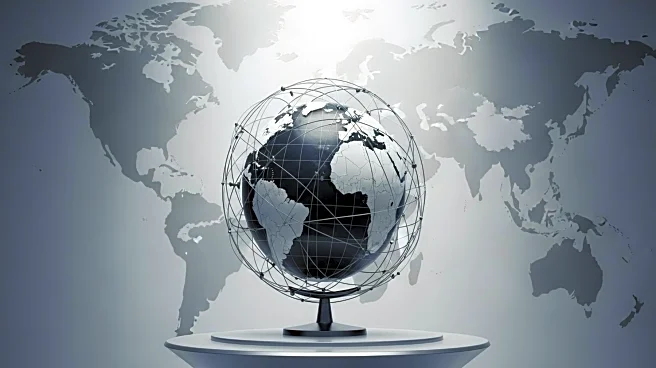What's Happening?
The United Nations General Assembly opened in New York City, marking its 80th anniversary. Secretary-General António Guterres initiated the General Debate, emphasizing the organization's founding principles of cooperation, law, and peace to prevent global conflict. He highlighted the urgent need for member states to choose a world governed by laws and rights, rather than raw power and self-interest. Guterres urged nations to focus on international law, human rights, climate justice, and technological advancement for humanity's benefit. He reflected on his experiences under dictatorship in Portugal, advocating for perseverance and the power of collective resolve.
Why It's Important?
Guterres' address underscores the critical role of the United Nations in fostering global stability and cooperation amidst rising geopolitical tensions and disruptions. His call to action is significant as it challenges member states to reaffirm their commitment to the foundational values of the UN, which are increasingly under threat. The emphasis on climate justice and technology highlights the evolving priorities of the UN in addressing contemporary global challenges. This speech serves as a reminder of the UN's potential to influence international policy and promote peace, human rights, and sustainable development.
What's Next?
The General Assembly will continue with discussions and debates among world leaders, focusing on pressing global issues such as climate change, technological impacts, and international security. Member states are expected to outline their positions and strategies in response to Guterres' call for cooperation. The outcomes of these discussions could shape future UN initiatives and international collaborations. Stakeholders, including political leaders and civil society groups, will likely react to the Secretary-General's address, influencing policy decisions and international relations.
Beyond the Headlines
Guterres' speech highlights the ethical and cultural dimensions of global governance, emphasizing the importance of human dignity and equality. The call for climate justice and technological advancement reflects a shift towards addressing long-term environmental and societal impacts. The speech also raises questions about the UN's effectiveness and potential reforms needed to enhance its role in the 21st century. The focus on cooperation over chaos suggests a need for renewed commitment to multilateralism in an increasingly fragmented world.









